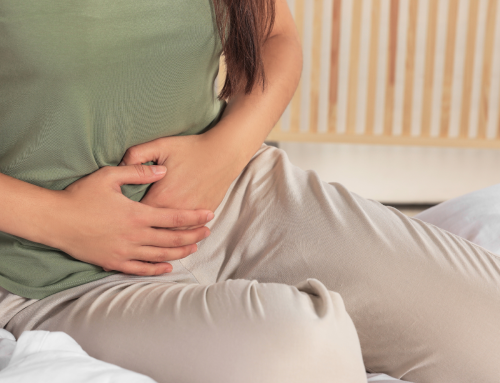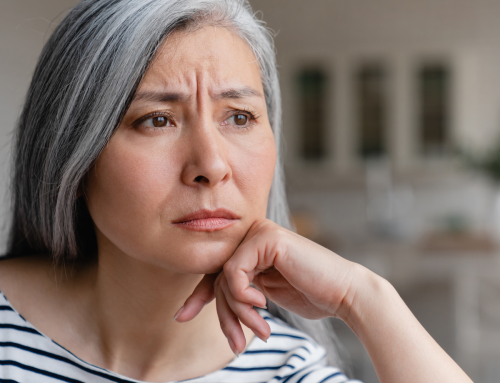
Entering midlife is a unique adventure characterized by self-discovery, empowerment, and often, a myriad of changes in our physical and emotional landscapes. For women aged 45-55, this time of life, which encapsulates the menopausal transition, can bring challenges that, while natural, shouldn't go unquestioned or untreated, particularly when it comes to an aspect as personal as sexual health. In this article, we'll explore the delicate and essential subject of vaginal health, specifically navigating when painful intimacy is a common part of aging and when it should signal the need for advanced intervention.
Navigating the New Normal
Menopause heralds a range of changes due to declining estrogen levels, such as hot flashes, mood swings, and for some, the less spoken of – pain during intercourse. It's important to recognize that discomfort during sex can be distressing but is not uncommon. Thus, the first step is understanding what's normal for your body at this stage. The vagina can become thinner and less flexible due to decreased lubrication, medically termed as vaginal atrophy. The good news is that vaginal atrophy is treatable and doesn't have to be the new normal.
What You Can Do
Discuss with Your Healthcare Provider
Don't shy away from addressing painful intimacy during your regular check-ups. Your gynecologist can help differentiate between common menopausal symptoms and potentially more concerning conditions.
Lubrication and Moisturizers
Over-the-counter options, as well as prescribed estrogen creams, can provide temporary relief from vaginal dryness. Being informed about these options and discussing them with your doctor can turn them into helpful tools in your intimate wellness toolkit.
Mindfulness and Communication
Painful intimacy can impact your relationship and emotional well-being. Open and honest communication with your partner about the changes you're experiencing fosters understanding. Additionally, mindfulness practices and counseling can help manage any associated stress or anxiety.
Beyond the Norm: Indicators You Shouldn't Ignore
While vaginal atrophy can explain a certain level of pain, there are instances where deeper issues might be masked under common menopausal symptoms. Ignoring these indicators can lead to unnecessary suffering or potential health risks.
Unusual Pain or Bleeding
If you're experiencing pain beyond discomfort, or if intercourse causes bleeding or a feeling of heaviness, it's crucial to seek medical advice. These could be indications of conditions like fibroids, polyps, or infections.
Persistent Discomfort and Impact on Lifestyle
When pain becomes chronic and starts affecting your quality of life, hobbies, and relationships, it's time to consider interventions. Treatments like V-Health are designed to address complex vaginal health issues and are safe and effective and non-invasive for suitable candidates.
V-Health: A New Frontier in Vaginal Rejuvenation
The realm of vaginal rejuvenation has made remarkable strides, and V-Health is among the forefront options for those seeking a revitalization of their intimate health. This innovative approach can provide a ray of hope for women whose symptoms go beyond what traditional treatments can manage.
The Science Behind V-Health
Utilizing cutting-edge technology, V-Health is non-surgical and aims to restore and rejuvenate vaginal tissues. By increasing blood flow, stimulating collagen synthesis, and providing deep hydration, V-Health can lead to improved vaginal health, reduced discomfort during sex, and enhanced self-confidence.
Is V-Health Right for You?
V-Health has been shown to be safe and effective for all types of symptoms related to menopause and other issues. How quickly it will work depends on the severity of your atrophy and symptoms. Your gynecologist or a specialist trained in these procedures can help assess how effective V-Health will be and the time to improvement. It's important to undergo a thorough evaluation to ensure your expectations are managed properly.
Lifestyle Management for Vaginal Health
In addition to medical interventions, lifestyle plays a crucial role in maintaining or reclaiming vaginal health. Adopting these practices can work synergistically with treatments to support a vibrant, intimate life.
Regular Pelvic Exercises
Kegel or pelvic floor exercises can help strengthen the muscles that support the pelvic organs and contribute to better bladder control, potentially enhancing your sexual experience.
Nourishing Your Body
A diet rich in antioxidants and omega-3 fatty acids, coupled with regular exercise, can contribute to overall health, reflected in the vitality of your intimate tissues.
The Power of Professional Consultation
Remember, when it comes to your vaginal health, knowledge truly is power. Seek out professional consultation not just when you're uncertain but also when you're struggling. The choice to address sexual discomfort is a personal one, but with accurate information and the support of understanding health professionals, it can lead to a life of harmony and fulfillment.
Navigating painful intimacy in midlife can be delicate, but with openness, education, and the right treatment, this chapter of your life can be as rewarding and rich as any other. It's never about the pain but the path to recovery and the power to reclaim the life and pleasure you deserve. Females over 45, I assure you, your best days of intimacy are not behind you; they're right ahead, waiting for you to take your future into your own hands—literally and figuratively.






